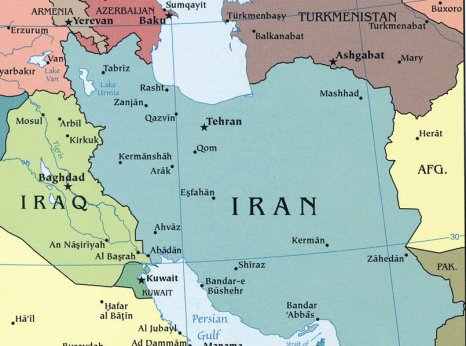Iran: Millions More Afghans In Iran Facing Expulsion

Iran has hosted one of the largest populations of Afghan refugees and asylum seekers in the world for 40 years. According to UNHCR, as of 2022, there were more than 4.5 million Afghans in Iran, and at least a million fled to Iran since the return of the Taliban to power in 2021, including Afghan human rights defenders, women activists and protestors, journalists and other dissidents. The population of Afghans in Iran, including recently arrived Afghans, those who have lived in the country for decades and individuals born in Iran to Afghan parents, face widespread discrimination in law and in practice, including barriers to education, housing, employment, healthcare, banking services and freedom of movement. They also face a pervasive climate of racism and xenophobia, fuelled by hate speech from authorities and resulting in acts of violence against them by both state and non-state actors that often go unpunished.
Iranian laws do not offer a reliable pathway to naturalization, except through marriage to an Iranian national or under a few other exceptional circumstances. As a result, most Afghans residing in Iran retain a precarious migration status, even after decades of living in the country, and their children, despite being born in Iran, are not automatically granted Iranian nationality either. Until March 2025, several million Afghans had been permitted to temporarily legalize their stay in Iran through obtaining a “headcount” document (bargeh-e sarshomari). Those granted this document could access limited socioeconomic services, including access to state healthcare, public education, work authorization, banking access and ability to enter into rental agreements. On 12 March 2025, Iran’s Centre for Foreign Nationals and Immigration Affairs, which falls under the Ministry of Interior, announced that “headcount” documents for Afghans would automatically expire from the start of the year 1404 on Iran’s calendar (corresponding to 20 March 2025) and that access to all socioeconomic services would be terminated. In the following months, the Iranian authorities stated their objective to return Afghans whose “headcount” documents had expired to Afghanistan by June 2025. Between 1 June and 10 July 2025, Iranian authorities expelled at least 546,000 people, including 5,000 “unaccompanied and separated children” in June 2025.
Amnesty International documented the testimonies of seven Afghans, which demonstrate the patterns of violations Iranian authorities are committing against Afghans through expedited expulsions. An Afghan man still in Iran at the time he spoke to Amnesty International in early July 2025 said he had been unable to enrol his children into public school as their “headcount” documents had expired, and that due to fear of arbitrary arrest and deportation, he was unable to freely leave his house during the day. He said, “I feel I am under house arrest. I only go out for a walk during nights. I sleep during the days so that time passes.” He further stated that his SIM-card had stopped working and, as he had fled to Iran after the Taliban takeover in 2021, he was at risk of arbitrary arrest by the Taliban due to his prior media work in Afghanistan. If arrested in Afghanistan, he would be at risk of grave human rights violations. Others who spoke to Amnesty International had been forced to leave Iran due to the expiry of their “headcount” documents. They said that the Iranian authorities charged them exorbitant fees for forced return transport to Afghanistan and that they were also forced to pay for municipal taxes for each of their family members before being sent to the Afghanistan border, or face arbitrary detention if these fees were not paid.
After hostilities between Israel and Iran escalated on 13 June 2025, Iranian officials, who have historically referred to Afghans as “foreigners” or “unauthorized nationals”, intensified their use of racist, xenophobic and dehumanizing rhetoric against this community. They have repeatedly called for the rapid “mopping up” of “foreign nationals” ordering them to leave Iran, scapegoating them for the government’s own failures in the area of social welfare and blaming them for strains on public education, state healthcare and the employment sector. Authorities have also made unsubstantiated accusations against Afghans alleging “espionage” for Israel. At least five individuals identified as Afghans have been arrested since 14 June 2025 on such accusations, and state media has aired the forced “confessions” of at least four of these men.
Amnesty International has documented extrajudicial executions, arbitrary arrests, torture and ill-treatment, enforced disappearances and war crimes under the Taliban rule. The Taliban have deprived women and girls of almost all rights, including access to education beyond primary school and work. This, together with the commission of torture and ill-treatment, enforced disappearance and imprisonment targeting women and girls, amounts to the crime against humanity of gender persecution. Afghanistan is the only state in the world where women and girls are banned from education beyond primary school. The Taliban have also imposed restrictions on religious and ethnic minorities.